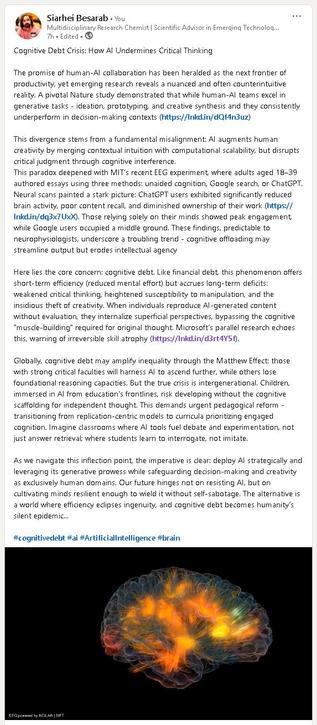RE: https://mastodon.green/@gerrymcgovern/115650272749921009
One of this article's many great points: Using #GenAI is a "metacognitive mirage".
> When participants used #ChatGPT to draft essays, brain scans revealed [-47%] in neural connectivity across regions associated with memory, language, and critical reasoning. Their brains worked less, but they felt just as engaged
> Students aren’t just learning less; their brains are learning not to learn.
#cognitiveDebt #StochasticParrots #MRI #brainDevelopment
#Chatversity replaces learning with cheating.



